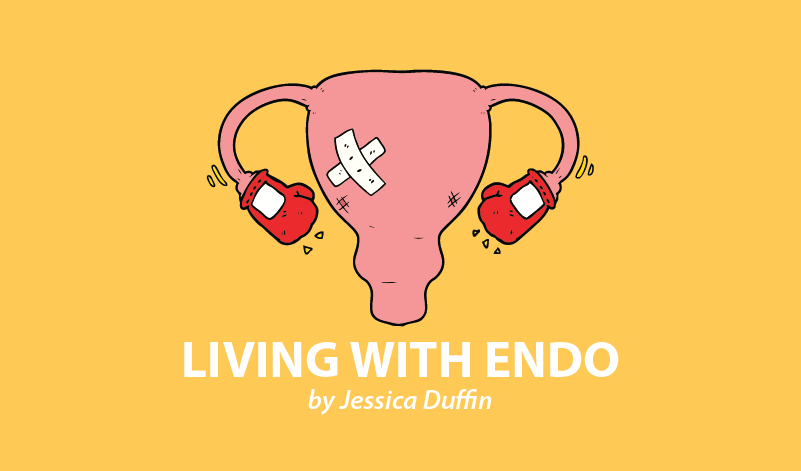After waiting for what has felt like months, I’ve finally had my first rapid transformational therapy session.
Beforehand, I was nervous. There’s understandably a lot to be anxious about. Many people have reservations about hypnosis and it can feel like a very vulnerable situation. My anxiety was about my memories. I was scared about what memories might come up and how distressing they might be for me. I was also terrified it wouldn’t work, after hearing so many great things about it and having so much hope placed in it.
Upon arriving at my therapist’s office, we discussed the main issues I wanted to work through. This is where I had some trouble. Anxiety, chronic stress, poor health, depression, perfectionism, self-punishment ― the list goes on.
I have a very complex and multilayered combination of mental health issues, and it’s a bit like the chicken and the egg. Did my depression and anxiety cause chronic stress that caused all my health issues? Or did endometriosis directly or indirectly cause depression and anxiety, causing chronic stress, heightening endometriosis symptoms? You can see the complications.
With rapid transformational therapy, you will usually go with an overarching theme, i.e., depression. Most of the time, any other issues you have are linked to that main issue, and working on that main issue will release the other problems. But I wasn’t clear which issue was the main one. We decided on some linked themes, which isn’t the usual practice, but we hoped to see which one of those triggered the core memories.
My next issue was my resistance to recalling old memories. I desperately wanted freedom from my past, but I was scared of confronting it. Going into the hypnotherapy, I had such a high level of anxiety that I was physically resisting the hypnosis – shaking, tensing up my muscles so I couldn’t relax, fighting off REM (which is the state they are trying to induce).
The hypnosis itself isn’t scary at all and involves following the therapists’ hand movements while breathing and blinking on their instructions. Yet, because of my fear, I moved in and out of the hypnotherapy and I only recalled memories with some significance, but they weren’t the main cause of my behavioral patterns.
Eventually, my therapist tried another approach, which involved my adult self-talking directly with my child self, and it was at this point I relaxed into the session. From there, the reprogramming could begin. This is when the therapist uses positive suggestions to reprogram the subconscious mind. This can take anywhere from 20 to 30 minutes, and it involves the therapist creating new positive beliefs about aspects of your self or life about which you are struggling.
Coming out of the session, I had that kind of tiredness that comes from crying for a couple of hours. Yet it also had that lightness that comes at the end of a crying session, when you’ve found the ability to let go and move on. As soon as I entered the hypnosis, tears began falling with no sign of stopping, until I entered the healing and reprogramming stage – where they abruptly stopped.
Following the session, I was instructed to listen to the reprogramming recording every evening before bed for 21 days to form new neurological pathways in my brain. During that time, I’ll have check-ins with my therapist about how I’m feeling. If I come to the end of those 21 days feeling like the issues I went to her with are still lingering, I’ll go back for another session (which is included in the £250 fee). My therapist has never had anyone back for a third session, and it’s often those with anxiety and resistance to the hypnotherapy who come back for a second session to go deeper.
Changes for some are instant. For others, they reveal themselves over the 21 days. I’m two days post-therapy, and I have to admit, there’s a lightness that I can’t put my finger on. It feels like the absence of anxiety, though I know it’s still there in the background, but it’s currently not at the forefront of my mind, as it normally is.
I expect I’ll return to my therapist for a second session, but I’m incredibly curious to see how the next 21 days affect me, and most importantly, what affect it may have on my stress levels and endometriosis symptoms. My hope is that reducing some of my feelings of anxiety and depression will alleviate the stress that often worsens endometriosis, but that’s yet to be seen.
Have you had rapid transformational therapy for endometriosis or chronic illness? I’d love to hear your experience!
***
Note: Endometriosis News is strictly a news and information website about the disease. It does not provide medical advice, diagnosis, or treatment. This content is not intended to be a substitute for professional medical advice, diagnosis, or treatment. Always seek the advice of your physician or other qualified health provider with any questions you may have regarding a medical condition. Never disregard professional medical advice or delay in seeking it because of something you have read on this website. The opinions expressed in this column are not those of Endometriosis News or its parent company, BioNews Services, and are intended to spark discussion about issues pertaining to endometriosis.


